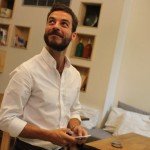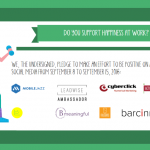Reimaging Barcelona Through Technology
The travel apps that are ripping up the rule book
Change in the travel industry is often vivid in retrospect, imperceptible in the moment. Mass tourism in the late 20th and early 21st century can be loosely grouped into three main periods: discovery, familiarity, and now boredom.
Barcelona is heading towards the final stage.
When mass tourism began, guests needed to be guided. Trips would be booked from start to finish with guided tours along each section. They were discovering a place for the first time and needed experts to assist.
Then, people began to discover places for themselves. Package holidays fell out of favour and guide books and review sites became the new tools of the savvy traveller. Visiting was no longer enough, you had to see the real side. There was a hunger for authenticity as travel became familiar and routine.
We are now entering the third phase; guests are searching for unique experiences. Experiences that are not easily discovered by the casual guidebook reader or hasty Googler. Right now we are experiencing the crash between mass tourism and the desire for a unique guest experience. This phase has co-incided with a time when cities are having to seriously address the number of visitors they can handle and still remain a viable place for residents, businesses, and new visitors.
 To use the example of Barcelona, the number of tourists and visitors is close to tipping this balance. Unique experiences and homegrown, singular pockets of culture are dwindling as the number of annual visitors is close to 8 million – in a city of just 2 million permanent residents.
To use the example of Barcelona, the number of tourists and visitors is close to tipping this balance. Unique experiences and homegrown, singular pockets of culture are dwindling as the number of annual visitors is close to 8 million – in a city of just 2 million permanent residents.
Change in Barcelona legislation meant that after 2014, rent increases no longer had to match inflation. This meant, overnight, rents could be increased without restriction. When this inevitably happened, older independent businesses were forced out. It closes avenues for new enterprise and meant that larger, multinational companies moved in, fed by the guaranteed footfall of hundreds of thousands of tourists. This accelerates the creation of a homogenised city space with fewer unique or distinctive experiences.
Sustainable mass tourism in cities such as Barcelona relies on mitigating the negative impact of transient residents, distributing their benefits, and providing tourists with the ultimate guest experience. Without action, Barcelona is not going to be able to provide this guest experience for its visitors and will see visitor numbers drop off in favor of new destinations. As well as the economic loss, the city center will be left designed for visitors that are not coming. A husk that sacrificed its individuality and pushed its residents out to make way for visitors.
The burden has fallen to apps and technology to come up with a solution. A way to change how every traveller sees the city and to preserve the charm and culture of a destination in the face of growing visitor numbers. One such solution is changing how tourists research and interact with a city, and how and where they choose to stay, visit and spend. There are apps that provide customized guides, unique services and tours, as well as ways to discover lesser known secrets of a city.
Guide books, websites always presented the same issue as package holidays. The information is geared to the masses. They push thousands of travellers to the same destinations everyday. It is not possible for them to devote time and space to smaller, more esoteric destinations or accommodation.
Technology is now providing us with ways to provide each guest with a unique way to see their destination. Every guest can now get information before their trip that contains information that is designed specifically for them. It goes hand in hand with the short term rental revolution. Local property owners are now giving their guests their unique guides and tips to see the city via mobile technology. No two experiences are the same and guests don’t have to rely on generic mass market information when exploring a city such as Barcelona. Customizable apps change the way we distribute knowledge. Flowing directly from this knowledge is the wealth and impact of mass tourism.
A 400 room hotel, stood on the corner of one city block directs their streams of guests down the same paths, to the same experiences. Singular properties dotted around the city reduce these streams of travellers and also distribute the income to different areas and different small business owners. Where there was order and familiarity there is now spontaneity.
‘Once the communication barrier is broken, the physical barrier falls,
and then follows economic benefit’
Apps to distribute information, and in turn, tourism, create new, smaller networks between guests and hosts, tourists and locals. You give each guest a new start point and a new end point in their journey through the city. Once the communication barrier is broken, the physical barrier falls next, and then follows economic benefit.
Unique guest experiences are created, a more grassroots flow of wealth, and a city that is able to thrive and remain distinctive and individual. This is then, in part, due to rather than in spite of mass tourism. Trips become less about ‘ticking off’ a destination and more about exploring a corner or area of city with a closer focus.
 We are scrambling the worn-smooth paths dug round the blocks of grand hotels. Lines and traditions that beat and nudge travellers through the same patterns unwittingly. The psycho-geography has been altered. Apps are now helping travellers to scrawl across the maps of cities.
We are scrambling the worn-smooth paths dug round the blocks of grand hotels. Lines and traditions that beat and nudge travellers through the same patterns unwittingly. The psycho-geography has been altered. Apps are now helping travellers to scrawl across the maps of cities.
By disrupting the city’s patterns and stream of guests, more interaction between residents and guests is created. Tourists and residents know the areas where they are meant to confine themselves to, technology is breaking down the communication barrier between them. It is the now residents of the city that provide the information, recommendations and eventually, services.
It is essential to accept that the community plays an important role in the development of tourism in the city: the people of Barcelona are not actors on a simple static stage, but the active participants and creators of the city and, as a consequence, tourism. Source
Vreasy operates in the travel and accommodation sector in Barcelona and has seen these trends happen in real time. Creating a property management system to manage short term rentals, they soon saw the need to provide more than just places to stay. Guidal by Vreasy is built to give property managers away to provide unique guest experiences to every guest. It redefines how guests see and experience a destination. Giving travellers a simple solution to finding authentic and singular experiences via recommendations from real local experts. A platform to share every different perspective of a destination and give guests the chance to experience a unique view of the city, local services, and maintain the charm, culture and individuality of the city.
The future of travel relies on personalization and customization.
Follow Barcinno to stay up to date with the next wave of technology and innovation that will make this possible.
Jonathan Fletcher is the Marketing Manager at Vreasy. He is a passionate writer with a BA Hons degree in English Literature. Has been a content writer for brands like Jackpot Games, among many others.







Leave a Reply